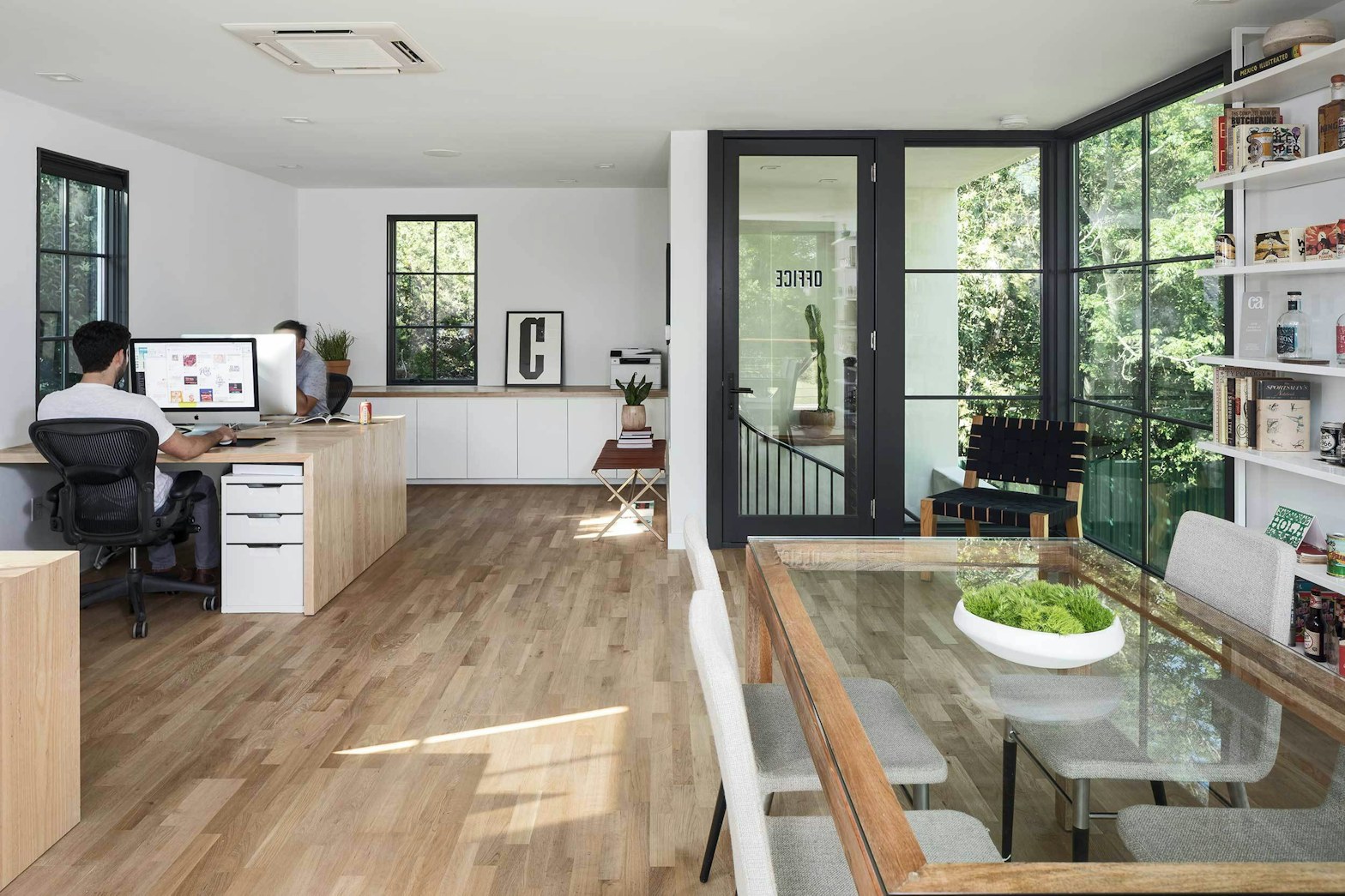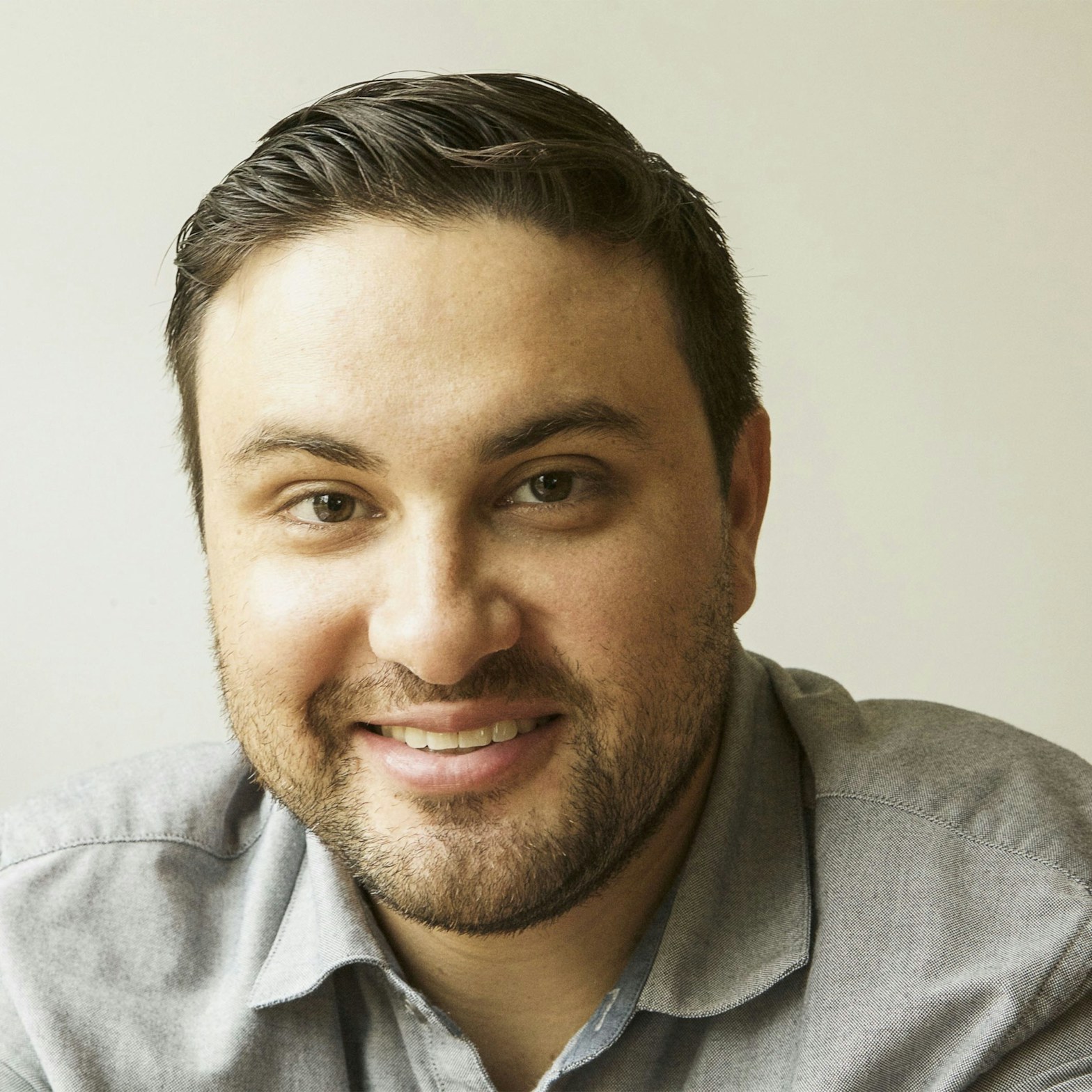
Canales & Co.
A boutique branding and design agency in Austin, Texas.
Canales & Co. didn’t want to feel like a traditional agency—they wanted to keep their process flexible and do stunning work. We partnered with them so they could turn that ethos into a solid company blueprint. And it all started with training a great writer into an amazing PM.

Organization
Canales & Co.
Based in
Austin, TX
Website
canalesco.com
Program
Apprenticeship (cohort LTT-015)
By the numbers
More larger value projects
35% larger project budgets
26% higher average client value
5% more projects won
LT10 helped me figure out how to be the leader of a project rather than just a participant in the project. I determine what the project does, the project doesn’t determine what I do. My confidence is through the roof thanks to this training and the program really helped our small agency run like a well-oiled machine.

Gabe
Guerra
Studio Manager
at Canales & Co.

Jose
Canales
Founder, Creative Director
at Canales & Co.
Tell me a little about your team. How big is it? Who does what? What’s it like to work there?
We’re a small team. Only 3 of us work in the office full-time. We have another team member who works on a more flexible/remote schedule. We are:
- Jose Canales: Owner, CEO, Creative Director
- Christina Canales: Interior Designer
- Gabe Guerra: Project Manager, Writer
- Denver Gravitt: Graphic Designer
Whenever people ask what it’s like to work at Canales & Co., our answer typically starts with: “We work out of our boss’ backyard.” We’re a small team working in a two-story office built in the backyard of Jose’s home in South Austin. This setup also means we’ve become quite close. We’re like-minded people who don’t mind working in such a tight-knit culture. Because of how (very literally) close to home this business is for our boss, we’re all encouraged to take ownership of every aspect of the work we do. We succeed together and fail together. But most importantly, we respect the fact that this is Jose’s home—working late hours and weekends isn’t really a part of our culture; what boss would want employees working in his yard all weekend when he’s trying to spend time with his kids?
So how did you hear about the Louder Than Ten Apprenticeship Program? What drew you to it? And what was it that convinced you to sign up?
We heard about the apprenticeship from Ariel Kidwell at Good Work. We hired their team to help us develop and launch our redesigned website and we were blown away by their buttoned-up, insightful, and just downright effective project management process. We asked them what their secret was, and they pointed us straight to Louder Than Ten. The idea of a PM training program was intriguing since I (Gabe, the project manager) was only self-trained at best. I started my PM role at Canales & Co. with no experience and had been winging it for almost 6 months before we heard about LT10. Naturally, I was horrified at the idea of doing “more school” in my professional years, but Jose was enthusiastic about having a project manager that actually knew what he was doing. When Rachel mentioned there was an unexpected opening in their next class, I reluctantly agreed to start my apprenticeship. But once it started, I was instantly fascinated by the material and forgot all about my hesitation.
How would you describe the way your team works together? And how has that changed since taking the apprenticeship program?
We’re small, we all take some ownership of every aspect of the business, and we are constantly in communication. We’ve always felt like a strong team, but thanks to the training from LT10, we’ve learned better delegation, which helps ensure everyone is working according to their strengths and capabilities. We’ve also implemented more efficient processes, we keep better records, we use Slack as our near-exclusive method of communication (rather than a random mix of verbal communication, email, and texts), and maintain a well-organized Dropbox archive for file sharing. We’re still small and relaxed as an office, but LT10 helped us learn how to keep our informality from hindering workflow and process.
Magic happens when great PM mixes with hot design






What else has changed about the way you do business? Where else has the program specifically had an impact?
In general, we’ve learned how to keep the well-being of the agency at the top of mind. The most obvious way we have implemented this is how we handle our scopes of work and timelines. Requests for ASAP turnarounds, “just one more” round of revisions, and general client indecisiveness no longer dictate how our office runs day-to-day. LT10 has taught us that good PM is much more active than reactive; we, not the clients, set the pace and tone of our projects. We’ve also worked hard to set up systems that result in solid, profitable, respectable bids. We’re no longer participating in a race to the bottom on our proposals—we want to set ourselves up for comfortable project scopes that leave us room to make work we’re proud of, not just offer the lowest possible number.
How has the program changed the way you do your work in a way that you might not have expected?
I can’t say I expected my job to get easier after this apprenticeship, but it did. LT10 helped me understand that my role isn’t to keep people happy, it’s to look after the well-being of the projects and designers I’ve been tasked to lead as well as the company itself. In the past, I took it upon myself to prioritize the whims of a client more highly than the project itself (out of fear of alienating clients, having them go above my head, etc.). This would often result in having to shelve important projects because of poor planning on a client’s part. There’s an old adage that goes: “A lack of planning on your part does not constitute an emergency on my part.” LT10 taught me how to use that mindset to balance responsive and helpful client service while maintaining a smooth workflow for my team.
What is the biggest struggle or challenge that you no longer lose sleep over? What’s one thing you no longer worry about or struggle with?
I almost never worry that I’ve missed something anymore. LT10 helped me get a stronger grasp on keeping track of my projects so I no longer feel that tasks are slipping through the cracks (e.g., keeping a well-maintained calendar, providing concise project status updates for clients, staying on top of emails, writing accurate project briefs). This has given me the peace of mind to proceed with my workload confidently and without constantly doubling back to make sure I haven’t missed something vitally important.
If I had a company and I was thinking about this apprenticeship—if I was on the fence, what would you most want to tell me? Having taken the program, what’s the one biggest selling point to you?
Being a PM is challenging. It’s a role people are often intimidated by, and for good reason. You’re tasked with leading projects that, at times, feel like they’re designed to fail (and sometimes, for one reason or another, essentially are). LT10 helped me figure out how to be the leader of a project rather than just a participant in the project. I determine what the project does, the project doesn’t determine what I do. My confidence is through the roof thanks to this training and the program really helped our small agency run like a well-oiled machine.

Comparing our business before and after LT10 training is like night and day. Before, I felt more inclined to micromanage, because we lacked the processes in place for smooth projects. Trust was lacking; I was worried things would fall through the cracks, and I was always ready for that phone call from a client telling us how we messed up. Now, I don’t worry about projects. Most of the time, I don’t even think about project management or the account service side of the business in general. That frees me up to run our studio and focus on creative – which is what I’m supposed to be doing in the first place. We’ve always exuded confidence in our design, but now we’re confident in our management as well. Overall, it makes our business feel more legitimate and makes me feel great about our investment with LT10.


